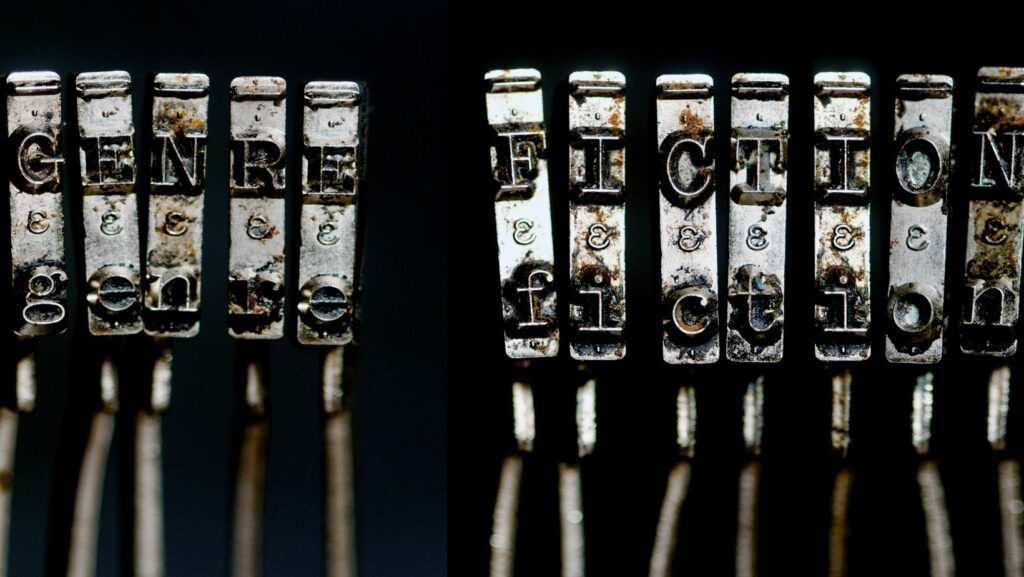Key Takeaways
- Understanding book genres enhances the reading experience by helping readers choose books that align with their interests and preferences.
- Fiction genres can be split into literary fiction, which emphasizes character development, and genre fiction, which includes popular categories like mystery, romance, science fiction, and fantasy.
- Non-fiction genres, including memoirs, biographies, and self-help books, provide valuable insights into real-life experiences and personal growth.
- Mystery and thriller genres engage readers with suspenseful narratives, while science fiction and fantasy explore imaginative worlds and futuristic scenarios.
- Romance and erotica delve into themes of love and intimacy, catering to diverse reader tastes and emotional connections.
Books have the power to transport readers to different worlds, ignite imaginations, and evoke deep emotions. With countless genres available, each offering a unique experience, understanding these categories can enhance one’s reading journey. From the thrilling twists of mystery to the heartwarming tales of romance, book genres shape how stories are told and received.
Exploring various genres not only helps readers find their next favorite book but also broadens their literary horizons. Whether someone is a fan of science fiction’s futuristic landscapes or the gripping suspense of horror, knowing the nuances of each genre can lead to more satisfying reading choices. Dive into the fascinating world of book genres and discover what makes each one special.
Book Genres Explained
 Understanding book genres enhances the reading experience. Each genre encompasses distinct characteristics that attract various readers. Here’s a breakdown of several prominent genres:
Understanding book genres enhances the reading experience. Each genre encompasses distinct characteristics that attract various readers. Here’s a breakdown of several prominent genres:
- Fiction
Fiction includes narratives created from the imagination. Subgenres such as literary fiction focus on character development, while commercial fiction emphasizes plot and entertainment.
- Non-Fiction
Non-fiction presents factual content. Categories like biographies provide insights into real lives, while self-help books offer guidance on personal development.
- Mystery
Mystery revolves around solving a crime or uncovering secrets. Thrilling plots often include detectives or amateur sleuths uncovering the truth.
- Romance
Romance centers on romantic relationships. Subgenres like contemporary romance focus on current settings, while historical romance explores themes set in earlier periods.
- Science Fiction
Science fiction imagines futuristic scenarios or advanced technology. Themes often include space exploration, time travel, and alternate realities, challenging scientific boundaries.
- Fantasy
Fantasy incorporates magical elements within imaginative worlds. Characters may include wizards, mythical creatures, or epic quests, creating a sense of wonder.
- Horror
Horror aims to evoke fear and discomfort. Subgenres like psychological horror focus on the mind’s darker aspects, while supernatural horror involves ghosts or monsters.
- Thriller
Thrillers provide fast-paced, suspenseful narratives. They often include complex plots, unexpected twists, and intense action, keeping readers on the edge of their seats.
- Young Adult
Young adult literature addresses themes relevant to adolescents. Narratives often focus on identity, relationships, and personal challenges, resonating with teenage readers.
- Historical Fiction
Historical fiction integrates real historical events with fictional narratives. It illuminates different time periods, providing context and depth to the storyline.
Exploring these genres allows readers to choose books aligning with their interests, fostering deeper engagement with literature.
Fiction Genres
Fiction encompasses various categories, each offering unique characteristics and storytelling techniques. Understanding these genres enhances the reader’s literary journey.
Literary Fiction
Literary fiction emphasizes character development, theme exploration, and stylistic elements. This genre often addresses complex human experiences and emotions, encouraging reflection and analysis. Examples include works like “To Kill a Mockingbird” by Harper Lee and “The Road” by Cormac McCarthy, both illustrating profound societal issues and moral dilemmas.
Genre Fiction
 Genre fiction includes popular subgenres such as mystery, romance, science fiction, and fantasy. These stories focus on engaging plots and often adhere to specific conventions. For instance, mystery novels like “The Girl with the Dragon Tattoo” by Stieg Larsson weave intricate puzzles, while romance novels such as “Pride and Prejudice” by Jane Austen emphasize relationships. Science fiction and fantasy transport readers to imagined worlds, as seen in “Dune” by Frank Herbert or “Harry Potter” by J.K. Rowling, respectively.
Genre fiction includes popular subgenres such as mystery, romance, science fiction, and fantasy. These stories focus on engaging plots and often adhere to specific conventions. For instance, mystery novels like “The Girl with the Dragon Tattoo” by Stieg Larsson weave intricate puzzles, while romance novels such as “Pride and Prejudice” by Jane Austen emphasize relationships. Science fiction and fantasy transport readers to imagined worlds, as seen in “Dune” by Frank Herbert or “Harry Potter” by J.K. Rowling, respectively.
Historical fiction intertwines factual historical events with fictional narratives. This genre brings past eras to life, allowing readers to engage with history through compelling characters and plots. Notable examples include “The Book Thief” by Markus Zusak and “All the Light We Cannot See” by Anthony Doerr, both incorporating real historical contexts to enrich their storytelling.
Non-Fiction Genres
Non-fiction genres provide insights into real-life events, experiences, and personal growth. They serve as valuable resources for understanding the complexities of the world.
Memoir and Biography
Memoirs and biographies capture individual lives, offering personal and historical perspectives. Memoirs focus on specific periods or events in an author’s life, emphasizing personal reflection and emotional truths. Notable examples include “The Glass Castle” by Jeannette Walls and “Educated” by Tara Westover. Biographies, however, encompass comprehensive life stories of remarkable individuals, highlighting their achievements and impacts on society. Renowned works include “Steve Jobs” by Walter Isaacson and “Alexander Hamilton” by Ron Chernow. Both genres foster connections between readers and authors, often inspiring deeper understanding of diverse experiences.
Self-Help and Personal Development
Self-help and personal development genres guide individuals in areas such as mental health, relationships, and productivity. These books provide practical advice, strategies, and motivational insights for enhancing one’s life. Popular titles like “The 7 Habits of Highly Effective People” by Stephen R. Covey and “Atomic Habits” by James Clear exemplify this genre’s focus on personal growth. Readers find tools to navigate challenges and increase self-awareness, leading to improved overall well-being. With relatable narratives and actionable steps, these books resonate with those seeking transformation.
Other Popular Genres
Exploring other popular genres enhances the breadth of literary experiences available to readers. Each genre offers distinct themes and storytelling techniques.
Mystery and Thriller
Mystery and thriller genres captivate readers with suspense and plot twists. Mystery novels revolve around crime-solving, inviting readers to deduce solutions alongside protagonists. Notable examples include Agatha Christie’s “Murder on the Orient Express” and Arthur Conan Doyle’s “The Hound of the Baskervilles.” Thrillers, often fast-paced, emphasize tension and adrenaline. Works like Gillian Flynn’s “Gone Girl” and Dan Brown’s “The Da Vinci Code” keep readers on edge, blending action with intricate plots.
Science Fiction and Fantasy
Science fiction and fantasy genres push the boundaries of imagination. Science fiction envisions futuristic scenarios and technological advancements, often addressing ethical dilemmas. Classic works include Isaac Asimov’s “Foundation” and Philip K. Dick’s “Do Androids Dream of Electric Sheep?” Fantasy, on the other hand, incorporates magical elements and mythical creatures into its narratives. J.R.R. Tolkien’s “The Hobbit” and J.K. Rowling’s “Harry Potter” series exemplify how fantasy creates immersive worlds that resonate with readers.
Romance and Erotica
Romance and erotica focus on relationships and intimacy. Romance novels celebrate love and often include themes of personal growth and emotional connection. Popular titles include Nicholas Sparks’ “The Notebook” and Jane Austen’s “Pride and Prejudice.” Erotica, while also exploring romance, prioritizes explicit sexual content and adult themes. Works like “Fifty Shades of Grey” by E.L. James highlight enhanced intimacy, appealing to audiences looking for passionate narratives.
Historical Fiction
Exploring book genres opens up a world of possibilities for readers. Each genre offers a unique lens through which stories unfold and emotions resonate. By understanding these categories readers can make informed choices that align with their interests and preferences.
Diving into different genres not only enhances the reading experience but also fosters a deeper appreciation for the art of storytelling. Whether one seeks the thrill of a mystery or the warmth of a romance there’s something for everyone. Embracing this diversity enriches literary journeys and encourages lifelong reading habits.



